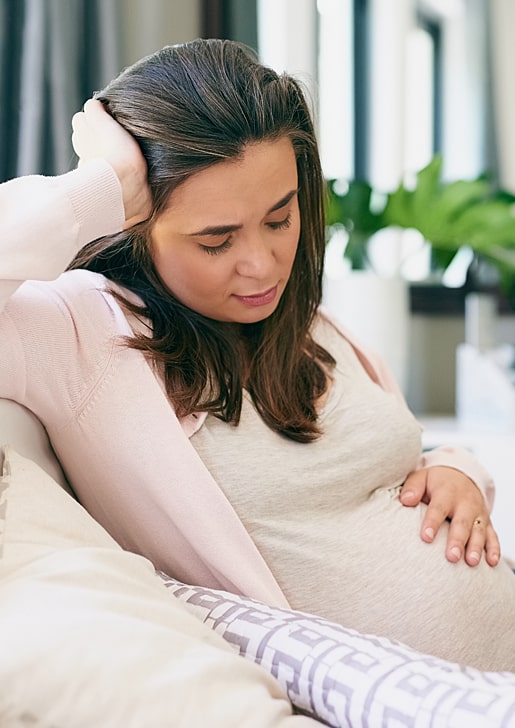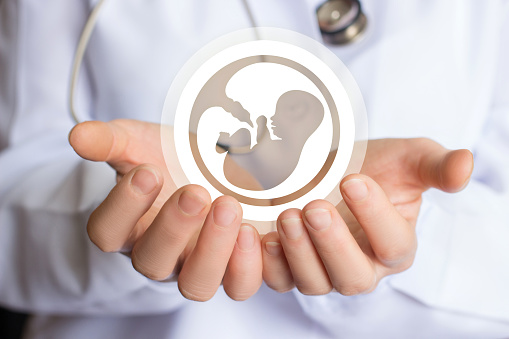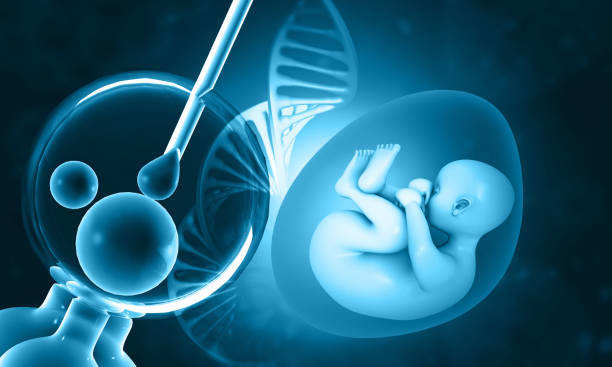Fertilized eggs are the first step in pregnancy. The fertilized egg normally adheres to the uterine lining.
Typically, a fallopian tube—the location of an ectopic pregnancy—transmits eggs to the womb. This type is called a tubal pregnancy. Some other body parts, like the abdominal wall, the ovary, or the bottom portion of the uterus, which is connected to the vagina, might occasionally have an ectopic pregnancy.
An ectopic pregnancy cannot develop properly. The fertilized egg cannot survive if left unchecked and the expanding tissue may result in life-threatening bleeding.
A warning sign of an early ectopic pregnancy
The first symptoms are often mild vaginal hemorrhage and stomach pain. Possible signs of fallopian tube bleeding include shoulder pain or the desire to urinate. Depending on which neurons are triggered and where the blood collects, you may experience specific sensations.

What signs might point to ectopic pregnancy?
Ectopic or uterine conceptions frequently present with nausea and breast discomfort. The following signs, which are more prevalent in ectopic pregnancies and may be an emergency, are:
Intense discomfort that only affects one part of the abdomen; sharp surges of pain in the belly, pelvis, shoulders, or neck; moderate to heavy spotting; light headedness or fainting; and rectal pressure.
If you are aware that you are pregnant and experiencing any of these signs, you must immediately see a doctor or get prompt treatment.
The detection of an ectopic pregnancy
If you believe you might be suffering an ectopic pregnancy, speak with your doctor straight soon. Ectopic pregnancy cannot be spotted with a physical checkup. Your doctor can still perform one to look into any additional factors.
Another stage of the diagnostic is transvaginal ultrasound. Your physician will insert a special wand-like device into the vagina to look for a gestational pouch in the womb.
Your physician may also perform a blood test to assess the hCG and progesterone amounts.
During pregnancy, these chemicals are produced. The pregnancy is most likely ectopic if an ultrasound doesn’t show a gestational sac and these hormone changes begin to slow down or stay the same over a few weeks.
There might not be enough time to do all of these procedures if you are experiencing severe indications, such as acute pain or bleeding. The fallopian tube may rupture under extreme conditions, resulting in considerable internal bleeding. Your doctor will next carry out an urgent treatment to begin treating you straight soon.
Taking care of ectopic pregnancy
Ectopic conceptions pose risks to the mother. Not only that, but the embryo won’t be able to grow into a baby. The embryo must be removed as soon as feasible for the mother’s immediate well-being and future fertility.
Different treatment options are available based on where the ectopic pregnancy is and how it develops.
Medication
Your doctor might determine that there won’t likely be any immediate issues. In this situation, your doctor may recommend several drugs to prevent the ectopic mass from rupturing. Methotrexate is a frequent treatment for this, based on the AAFP.

Drugs like methotrexate slow down the development of cells that divide quickly, as those in an ectopic tumor. Your physician will inject you with this drug if you choose to take it. It would help if you also had routine blood testing to ensure the medication works. When the medicine works properly, it will produce symptoms resembling a miscarriage. These consist of:
- Hemorrhage
- Cramps
- tissue passing
After this happens, additional surgery is hardly ever necessary. The dangers of fallopian tube damage associated with surgery are not present with methotrexate. However, for several weeks after taking this drug, you won’t be able to become pregnant.
Surgery
To fix an internal issue, many surgeons guide to take out the embryo, which is called Laparotomy (medical term). The doctor will build a small incision and implant a small camera to ensure they can view their job. The surgeon then removes the embryo and makes any necessary fallopian tube adjustments.
The doctor may perform the Laparotomy through a bigger incision if the procedure is unsuccessful. In cases where the fallopian tube needs to be removed during surgery, your physician may do so.
House care
Regarding how to care for your incisions following surgery, your physician will provide you with detailed instructions. The main purpose is to keep your wounds dry and clean as they recover.
Following surgery, you should anticipate some minor vaginal bleeding and blood clots. Up to 6 weeks following your treatment, this could happen.
Call your doctor immediately if your discomfort worsens or you notice anything unusual.
Prevention
Not every situation lends itself to prediction and avoidance. You might be able to lower your risk by maintaining excellent reproductive health. Limit the number of partners you have for sexual activity and insist your partner use a condom. This lowers your chance of STDs, resulting in PID, a disorder resulting in fallopian tube irritation.
Maintain routine doctor’s appointments, such as routine gynecological examinations and STD testing. A useful preventive tactic is improving your health by giving up smoking.
Emergencies sign
If the fertilized egg is permitted to continue to develop inside, the fallopian tube can rupture. The stomach may bleed profusely. These potentially dangerous symptoms include sudden collapse, panic, and severe dizziness.
After an ectopic pregnancy, may my pregnancy persist?

Sadly, an ectopic pregnancy leads to fetal death. It can’t live outside of the womb. In the view of safeguarding the life of the mother, ectopic pregnancy should be treated straight away.
In the event that the fallopian tube collapses after the egg has been implanted, there can be substantial internal bleeding. Maternal death may result from this.
How long must I wait after having an ectopic pregnancy before trying again?
After receiving treatment for an ectopic pregnancy, you must speak to your healthcare professional about upcoming pregnancies. It’s usually advisable to wait for around three months after therapy, even though pregnancy may occur rapidly. This lowers the possibility of an ectopic pregnancy while giving the fallopian tube time to recover.
Is it possible to conceive again after an ectopic pregnancy?
Most women who experience ectopic pregnancies continue to have subsequent, healthy pregnancies. After experiencing an ectopic pregnancy, your chances of having more are increased.